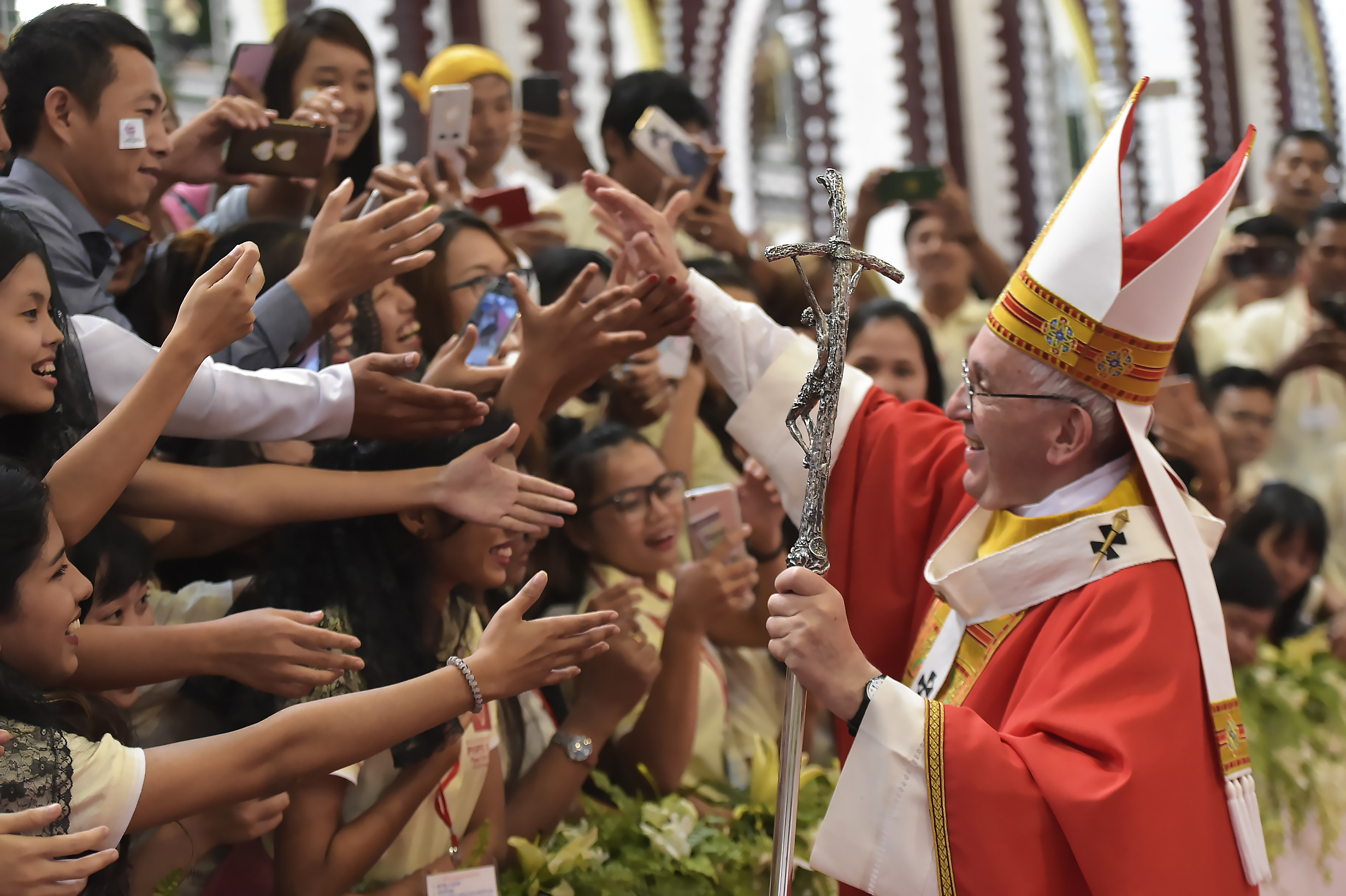An assessment of the apostolic visit
“Pope Francis’ approach is often simple and fatherly. This familiarity touched everyone’s hearts, Christians and Buddhists alike. In this interview with SIR, Father Mariano Soe Naing, spokesperson of the Bishops’ Conference of Myanmar, outlined the highlights of Pope Francis’ visit, the impact on the life of the Country’s fragile democracy, and the next steps of the small Catholic community. “The public opinion – he said – deeply appreciated the fact that the Pope avoided mentioning the crisis in the Rakhine State and that he delivered an inclusive speech, calling for the respect of all ethnic groups.”

“A historic event” in the life of the small Catholic community and for the whole of Myanmar. With these words, Father Mariano Soe Naing, spokesperson of the Bishops’ Conference of Myanmar, described the visit of Pope Francis in the Country that was concluded yesterday, November 30th. While the Pope continues his journey to Bangladesh, the 700 000 Burmese Catholics have already started to think of the future with renewed hope.
 Father Mariano, what were the most significant moments of the visit, and why?
Father Mariano, what were the most significant moments of the visit, and why?
Together with the bishops we are working on a reflection on the visit to delve into the contents and meaning of his speeches: the homily during the Holy Mass in Kyaikkasan Ground, the homily to young people and the addresses to political authorities in the capital Nay Pyi Taw and to the Sangha Supreme Council of Buddhist monks at the Kaba Aye Centre. In my opinion, the most important moments were those during the Mass of November 30th with young people at St. Mary’s Cathedral,
Especially when the Pope spoke openly with the youths, it was a very emotional moment.
Young people were extremely happy about the Pope’s presence among them, it was a beautiful encounter.
What has been the impact of Pope Francis’ visit on public opinion and on the media?
In most occasions, Pope Francis’ approach to people is a simple and fatherly one. This familiarity touched everyone’s hearts: Christians as well as Buddhists.
I think they perceived the great discipline and unity of the Catholic Church, despite concerns regarding the inflow of thousands of people at once. Law enforcement authorities and the public opinion were impressed by our discipline during and after the public events, by they way in which we help each other, by the mutual kindness and by our yearning for national unity.
Could it be defined a historic moment for Myanmar?
Yes, it was a historic moment. Also the press described the visit in these terms.
The public opinion deeply appreciated the fact that the Pope avoided mentioning the crisis in the Rakhine State and delivered an inclusive speech, calling for the respect of all ethnic groups.
Do you think that the visit will help strengthen the democratic process in the Country?
Yes, we hope it will advance mutual acceptance in particular. During the meeting with Buddhist monks, both speeches – of the leader of the Sangha Supreme Council and of the Pope -, highlighted the absence of violence at the roots of all religions, which never mention extremism or terrorism. They said that differences should not create problems, that we must work together, hand in hand. Also at Nay Pyi Taw, when the Pope met with Aung San Suu Kyi, common traits involved the yearning to overcome divisions and work together for peace, growth and people’s security…
I think that the Pope’s visit will provide a major thrust to the democratization process in the Country, for mutual respect and for unity.
Which aspects of the meeting with Pope Francis will you cherish at personal level?
This experience made us all extremely happy. As organizers we were very busy ensuring that everything went smoothly, however we had some occasions to be near the Pope. His face was always smiling, especially during Mass. I perceived the joy of the people around their leader and his joy of being with us. I felt our unity in one Church. We will cherish this closeness in our hearts and in our faith.
In conclusion, what are the next steps of the small Catholic community of Myanmar?
In January we will have a meeting of the Bishops’ Conference and certainly the bishops will plan the pastoral care according to the indications of the Pope. It will be followed by the national meeting of young people, another occasion to put his words into practice.
We will ensure that what he told us is not forgotten and we will seek to extend as much as possible the positive impact of his visit.